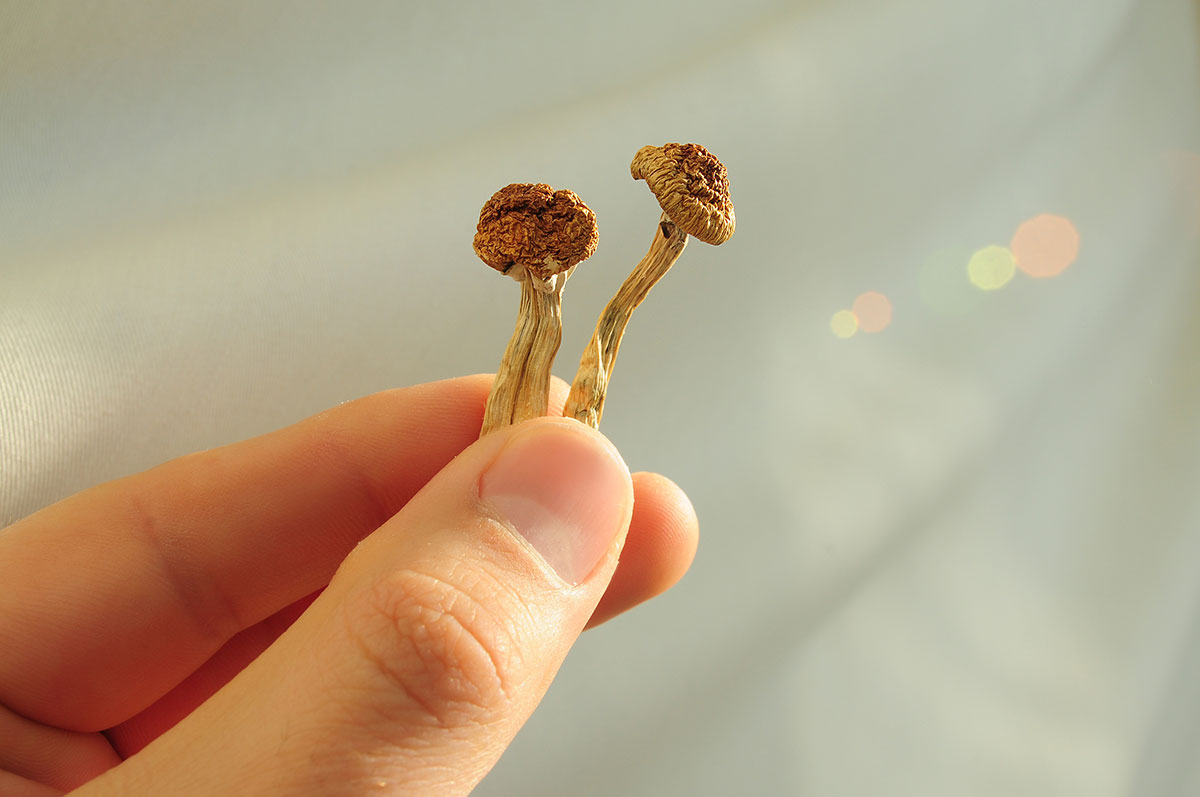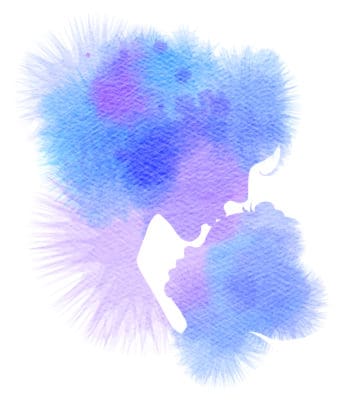Medical Editor: Dr. Lynn Marie Morski, MD, Esq
Psilocybin mushrooms, also known as magic mushrooms, grow naturally on every continent — except Antarctica. They are the primary source of psilocybin, a psychoactive compound known for its transformative and therapeutic potentials. In 2019 the FDA granted psilocybin breakthrough therapy status for the treatment of depression.
At this point, mushroom therapy for depression occurs only in underground settings or in clinical trials.
It is important to remember that psilocybin clinical trials use isolated or synthesized psilocybin. However, people outside of clinical trials are more likely to use dried mushrooms (often called shrooms) for treating symptoms of depression.
Though the use of psilocybin-containing mushrooms is still illegal under federal law, as they are a Schedule I substance, some local municipalities and states have made efforts to decriminalize use and cultivation.
Some compassionate practitioners and mushroom retreat centers support people who use mushroom therapy for depression. Support might include pre-trip counseling and preparation, sitting with a person during their trip itself, and post-trip integration therapy in both the short and long term.
Support may also include intake questionnaires to help identify any concerns or health conditions that might increase risk. While psilocybin is contraindicated in some situations, psilocybin is generally considered safe.
Magic mushrooms for depression vs psilocybin for depression
Dried mushrooms were once living organisms. While isolated psilocybin allows for exact dosing, the internal composition of a dried mushroom will vary greatly depending on the environment in which it was grown. The cap and stem may contain varying concentrations of psilocybin, even if they are from the same crop or cluster.
Depending on what conditions the mushrooms were grown under, when they were harvested, and how they were handled, the psilocybin within might have degraded significantly over time or through exposure to sunlight. Typically, mushrooms grown indoors are more potent than those growing in the wild.
For these reasons, a standard 2-gram dose of dried psilocybin mushrooms will deliver a different dose of psilocybin every single time, whereas synthetic psilocybin delivers an exact dose.
Psilocybin mushrooms and the entourage effect
Magic mushrooms contain more than just the psychoactive molecule psilocybin. Researchers are only just beginning to consider the entourage effect of the various compounds naturally occurring in magic mushrooms.
The entourage effect is well known among people who use cannabis, but it applies to psilocybin mushrooms as well. While THC is the intoxicating compound found in cannabis, the cannabinoid that alters perception and provides euphoria, hundreds of other compounds contribute to the overall therapeutic effects of cannabis. The same theory can apply to magic mushrooms.
Whereas therapy with psilocybin only deals with a single psychoactive compound, therapy using dried mushrooms involves additional psychoactive compounds, such as baeocystin, psilocin, and potentially beta-carbolines like harmans, harmine, norharmine, and perlolyrine.
These compounds are present in several psychoactive plant species, but their presence in magic mushrooms was only recently discovered. While we know how these individual compounds act in the human body, we do not yet have any clinical trials investigating how these compounds work together in the human body alongside psilocybin.
Which psilocybin mushrooms treat depression?
There are over 200 known species of mushrooms that contain psilocybin. Without any rigorous research on the matter, how do people know which mushrooms help with depression?
Currently, this question boils down to a matter of accessibility. For those seeking psilocybin mushroom therapy, the most commonly used magic mushroom species is psilocybe cubensis, which comes in various strains and grows very easily indoors.
Each strain of the psilocybe cubensis species is unique, featuring an unknown range of compounds that play a role in the trip. With over 60 known subtypes of psilocybe cubensis and likely more to be discovered, it might seem desirable to find the magic mushroom that specifically treats depression— but that’s not quite how mushroom therapy works.
Alleviating depression with magic mushrooms
There are not currently any clinical trials investigating the use of dried psilocybin mushrooms to treat depression. The natural variance of psilocybin found in magic mushroom species and their subtypes makes dried mushrooms unlikely candidates for clinical trials, which rely upon precise doses and placebo controls.
But, we have many studies on the specific role of psilocybin, the most prominent psychoactive compound found in magic mushrooms.
For starters, psilocybin therapy has proven efficacious in treating end-of-life anxiety in patients with advanced stages of cancer. It has also been shown to be effective in treating Major Depressive Disorder (MDD). Psilocybin was also found to enhance the effects of supportive mindfulness therapies used in the treatment of depression.
Additional studies help reveal the therapeutic mechanisms of psilocybin. Psilocybin seems to present a unique affinity for eliciting the mystical-type experiences known to produce enduring, positive behavior changes. And neural imaging studies are beginning to reveal how psilocybin decreases blood flow to the amygdala, a brain region correlated in treatment-resistant depression.
Microdosing magic mushrooms can improve depression
A microdose is a sub-perceptible amount of a substance, meaning that it does not alter one’s conscious perception of the world around them — but might elevate their mood.
While there is not yet any clinical evidence to support claims of efficacy, some people follow microdosing research expert James Fadiman’s protocol of no more than .2g taken once daily every three days.
A practitioner might advise support practices like journaling, meditation, or habit tracking before beginning a microdose regimen. Finding a baseline understanding of symptoms and moods can help determine whether microdosing mushrooms for depression are having a beneficial effect.
Magic mushroom trips for depression
While it is always advisable to have a knowledgeable therapist or guide present when using magic mushrooms for the first time, we will be covering some harm-reduction concepts for those who decide to try it on their own.
It is always recommended to start with a low dose and have some support in place if things become difficult during the trip.
Beyond the sub-perceptible microdose, a magic mushroom trip may be summarized into three categories based upon dose: low, high, and heroic.
Working with a practitioner can help ensure a better trip, especially for people learning to navigate intense traumas. What works for one person may leave another feeling unwell and overwhelmed, and having the proper support system can help transform a difficult trip into a therapeutic one.
A low dose might range between .5-1.5 grams and would be unlikely to induce the level of ego dissolution and mystical-type experiences commonly seen in larger doses. 1-2 grams would likely allow experienced people to remain functional amidst mind expansion and increased sensory stimulation.
A high dose will range from 2.5-3.5 grams and is more likely to elicit a transformative experience. Ego dissolution and mystical-type encounters are more likely here, as are anxiety, fear, and an inability to function in everyday situations.
Colloquially referred to as a heroic dose, 5 grams or more will most likely result in a profoundly intense trip that leaves the person incapacitated for a few hours.
Recalling the limited clinical research we do have on psilocybin therapy, it seems that eliciting the mystical-type experience is most effective for catalyzing enduring changes in well-being. With this in mind, people seeking shrooms for depression might choose to work alongside an experienced practitioner who can support measured, tangible transformation.
A final thought: the mushrooms themselves do not “cure” anything, but rather, the compounds catalyze physiological changes that bring the mind into transformative states of consciousness. When coupled with supportive and experienced practitioners, magic mushrooms may help treat and alleviate symptoms of depression.





